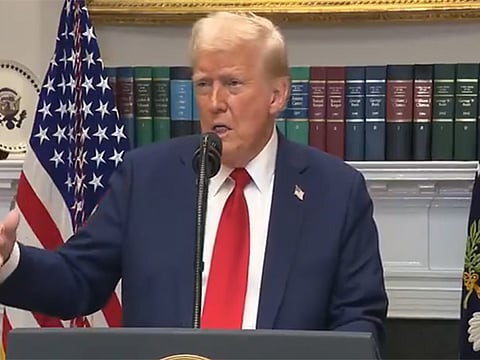
- News
- Campus
- Exam
- Podcast
- Web Stories
- Do You Know
- Path Finders - UG Programs
- Videos
- Book Review

President Donald Trump has implemented sweeping changes to the H-1B visa program, according to a CNN report, introducing a hefty $100,000 annual application fee in what represents his latest move to reshape America's immigration landscape.
Trump defends high-fee strategy
The president justified the dramatic fee increase during an Oval Office announcement Friday, September 19, 2025, stating it would ensure companies recruit only the most skilled foreign workers. "We need great workers, and this pretty much ensures that that's what's going to happen," Trump declared as administration officials outlined the new measures.
The policy restricts entry under the H-1B program unless companies pay the substantial fee, with Commerce Secretary Howard Lutnick revealing the administration settled on the $100,000 annual cost after consulting with businesses. Officials are still determining whether to collect $300,000 upfront or spread the payment across the three-year visa period.
Million-dollar 'Gold Card'
Alongside the H-1B changes, Trump unveiled a premium immigration pathway dubbed the "gold card" program. This initiative fast-tracks visas for foreigners willing to pay $1 million, or allows companies to speed up the process for sponsored workers by paying $2 million.
Lutnick, who conceived the gold card concept, criticised the existing green card system for admitting what he characterised as the "bottom quartile" of foreign workers. "We're going to only take extraordinary people at the very top," he emphasised.
Tech industry disruption
The H-1B program, which issues 65,000 visas annually plus 20,000 for advanced degree holders from US institutions, has become essential for technology companies struggling to find specialised talent domestically. The new fee structure threatens to significantly impact industries heavily dependent on these skilled foreign workers.
Trump's position on H-1B visas has shifted over time, creating divisions within his supporter base. While he restricted the program during his first presidency and previously criticised companies for using H-1B workers to replace Americans at lower wages, he more recently defended the program, telling the New York Post in December that he's "a believer in H-1B" and has "always been in favor of the visas."
